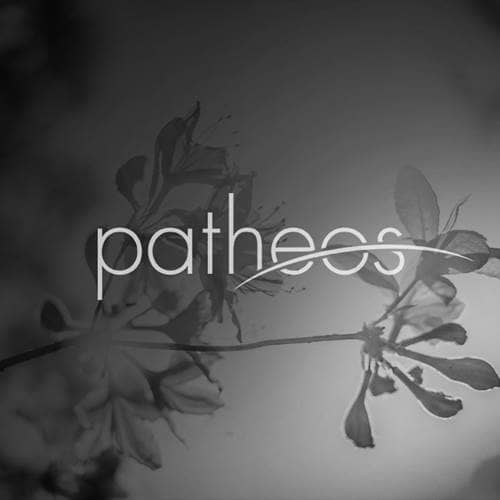- Trending:
- Pope Leo Xiv
- |
- Israel
- |
- Trump
- |
- Social Justice
- |
- Peace
- |
- Love

RELIGION LIBRARY
Zen
Principles of Moral Thought and Action
Both China and Japan had well-developed systems of morality before Buddhism entered these countries, and Chan and Zen were forms of Buddhism that developed later, after Buddhism was already established. There was no need for a unique moral system for Zen. (Throughout this section, the term Zen will also encompass Chan and other forms of the sect). Like all Buddhist monks, Zen monks followed the precepts, and their monasteries had strict rules and regulations.
The precepts take slightly different forms for different sects of Buddhism, and for Rinzai and Soto Zen (Chinese, Linji and Caodong Chan). All precepts include key vows: not to kill, not to steal, not to lie, not to use intoxicants, and not to engage in sexual activities. Others are also important: not to gossip; not to praise oneself or blame others; to be generous and avoid greed; to avoid anger and hatred; and not to dishonor the Buddha, the Dharma, or the Sangha. Chan monks and nuns also follow the 200 odd regulations of the Dharmagupta Vinaya. Zen monks, like other Mahayana Buddhists, also took the bodhisattva vow to delay their own enlightenment until all sentient beings have become enlightened. Developing a sense of compassion is essential to Zen.
As Buddhism has moved to the modern West, there have been some efforts to adapt the precepts to a new audience. For example, the Vietnamese Zen monk Thich Nhat Hanh (b. 1926), who has a large following in the West, has written a set of fourteen precepts for the modern Buddhist. Among these precepts are avoid idolatrous attachment to any doctrine, including Buddhism; avoid narrow-mindedness; do not force others, including children, to adopt your views; do not avoid suffering or close your eyes to it; do not accumulate wealth; do not use the Buddhist community for personal gain or profit, or make it a political body—but do take a clear stand against oppression and injustice; do not engage in a vocation that harms others; and do not mistreat your body.
Thich Nhat Hanh is also among a number of contemporary advocates of "Engaged Buddhism," a movement that stresses compassionate action as opposed to monastic isolation. While "good deeds" are not among the precepts, with the exception of the vow to bring about the enlightenment of all, Zen, like other forms of Buddhism, has always participated in forms of social service. Some critics of insistent or proselytizing forms of Engaged Buddhism argue that the practices of silence and meditation are themselves effective methods of changing the world.
In the West, Zen has had a reputation as a religion where anything goes and there are no rules, despite the fact that Zen monastic training involves a strict and regimented form of discipline. Some scholars have argued that the deconstructionist character of Zen philosophy lends itself to an amoral stance, or that Zen philosophy does not distinguish between good and evil. This may based on taking the koans as historical facts, whereas koans depicting violence were meant to be shocking or paradoxical, in contrast to the way that monks and nuns actually lived. In contrast, others have argued that those who see things as they really are—a goal of Zen practice—will naturally act morally. The absence of existential truths does not negate morality; moral behavior arises from the moment, from any specific situation in which one finds oneself. As early as the 10th century, Zen scholars were arguing for the existence of an "internal precept" or "precept of the Buddha-mind" that is the result of enlightenment.
Lay Zen Buddhists could also take the precepts, and, as they became more advanced, also the bodhisattva vow. While many took these vows with great seriousness, there were periods in which Zen offered mass ordination ceremonies and the sale of certificates of ordination. These represented a form of exploitation of these vows not unlike the sale of indulgences in medieval Catholicism. It was believed by some that taking the precepts permanently absolved one from the consequences of one's deeds.
Zen funerals in which the deceased were ordained as monks and declared to be enlightened may also appear to be a form of exploitation, and perhaps they began as such, but there is no indication that as this practice led to moral degeneration as it became widespread. Neither did the practice eliminate folk beliefs about the souls of the deceased, or rituals that involved burning money and paper replicas of household goods for the deceased to use in the afterlife. Most apparently did not take these funeral rituals as having literally brought about enlightenment. Rather, they seem to be among the many methods used by the living to provide the best possible outcome for their deceased loved ones. These practices also probably predate Zen. Taoists in China will also perform some of these same rituals. The Chinese Pudu ritual can be performed by either a Buddhist monk or a Taoist priest.
Study Questions:
1. Describe Zen's relationship to Buddhism in terms of morality.
2. What are some of the precepts that Zen monks adhere to?
3. Who is Thich Nhat Hanh? What has he offered to Western Buddhism/Zen?
4. What is the role of morality in Zen?
5. Why has Zen often been seen as a force of exploitation?










